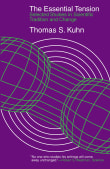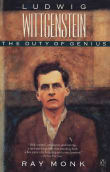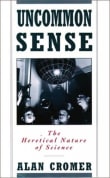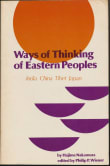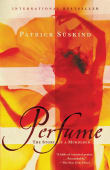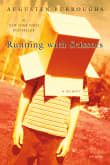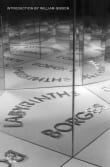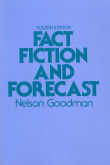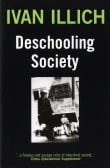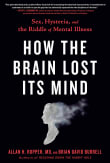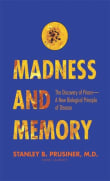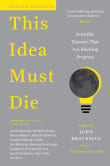The Structure of Scientific Revolutions
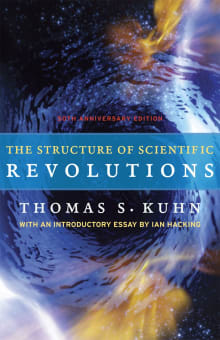
Book description
A good book may have the power to change the way we see the world, but a great book actually becomes part of our daily consciousness, pervading our thinking to the point that we take it for granted, and we forget how provocative and challenging its ideas once were-and still…
Why read it?
16 authors picked The Structure of Scientific Revolutions as one of their favorite books. Why do they recommend it?

On the surface, this seems a dry treatise on the process of scientific change, but as you get into it, you encounter again and again the stories of hardheaded researchers convinced that the world explained by current theory just doesn’t make sense and shows how they were driven, often reluctantly, to make sense of things. Priestley’s and Lavoisier’s experiments are included with many others but always set within the framework of a discipline in a “crisis” that needs to be resolved.
The personal costs are not neglected–ridicule, isolation from the accepted “establishment,” sometimes far worse. Scientific progress is often portrayed…
From Joe's list on mystery and chaos of scientific inquiry.

This is the book that changed my thinking about science—but I had to read it twice before I understood what was really going on. It’s not the revolutions that are radical, but ordinary science, which motivates scientists to undertake long, arduous, risky programs of experimentation or observation by providing a guarantee that they cannot possibly fail.
The guarantee comes in the form of the famous Kuhnian “paradigm,” which is a blueprint for doing scientific research that ordinary scientists are not permitted to question. But paradigms can fail, and so the guarantee that motivates scientists is a piece of fakery. Science,…
From Michael's list on show how science really works.

This book also gives a vivid and dramatic account of the way science proceeds, but one that is strikingly different from that of Popper’s account. According to Kuhn, much of science is what he calls “normal” science: a basic theory, or “paradigm,” is taken for granted, and scientists seek to increase its experimental range and accuracy. But then “anomalies” begin to accumulate; crisis sets in until a new paradigm is proposed, a revolution occurs, the old paradigm is defeated, and a new phase of normal science begins.
I loved the drama Kuhn finds in this procedure of normal and revolutionary…
From Nicholas' list on the dramatic nature of science.

This book was a milestone in the analysis of scientific thinking and progress. Rather than following the traditional approach of focusing almost entirely on the rationality and logic of scientific advance–which was taken to be continuous in nature–Kuhn stressed the more discontinuous breaks that divided successive changes in what he described as successive “paradigm-shifts” of scientific interpretation–that is, the “revolutions” that transformed its focus and fundamental concepts. These were likened to the “gestalt shifts” (discussed by Hanson) associated with fundamentally ambiguous visual perceptions. Successive scientific paradigms, Kuhn argued, were incommensurable with one another.
This interpretation sparked somewhat of an uproar.…
From James' list on logic of scientific discovery.

In 1962, Thomas Kuhn upended the idea of scientific progress by suggesting that scientific theories change basically like fads. I find this book riveting, with a mix of colorful descriptions of science’s history and bold claims.
The book has been so influential that “paradigm shift”—its central idea that basic features of how we see the world change when scientific theories change—has been adopted to refer to any time our ideas change radically.
From Angela's list on exploring strange features of science.

When I was a biomedical science graduate student, this book was on my shelf for a couple of years before I read it. I had pulled it out of a classmate’s trash bag when I was helping him move. Later, when I became distressed because my research findings were dismissed as “controversial,” a postdoctoral fellow in my lab told me that what I experienced was actually quite normal for novel scientific findings and I should read this book.
I did, and it changed forever my understanding of science and how scientists often resist accepting from others the very thing they…
From James' list on what science and scientists are really all about.

If you’ve ever wondered where all this talk of “paradigms” and “paradigm shifts” comes from, this book is the answer. A paradigm, according to Kuhn, is a set of theories and beliefs that guide scientific research by telling us what there is to know and how we can come to know it.
When a paradigm changes, a paradigm shift occurs. Some purveyors of the paranormal claim that their view represents a paradigm shift in our thinking. Kuhn’s book will help you assess whether that is indeed the case.
From Ted's list on evaluating claims of the paranormal.

This book is a must-read for anyone concerned with any form of change.
While focusing on the advancement of science, Kuhn, in his brilliant analysis, brings attention to the distinction between paradigmatic and incremental change. His is the key analysis between disruption and slow progression. In this day and age, when so many corporate leaders are obsessed with being disruptive, we often fail to realize that much of our progress is based on slow and steady incrementalism—one piece built upon another.
Paradigmatic change or total disruption has its benefits and its negative aspects, but it’s an outlier. All too often,…

I first read The Structure of Scientific Revolutions when I was in college many (many) years ago, and it fundamentally changed the way I think about organizational change and innovation.
Written by a physicist, the book is about the philosophy and history of science and how we make advances in knowledge. Kuhn argues, and provides plenty of examples, of how science isn’t just the slow accumulation of data, but is actually influenced by “paradigms” that help us make sense of the data. Every so often however data emerges that doesn’t fit the paradigm.
At first this kind of anomalous data…
From Ron's list on simplifying your organization.

This book shows what it takes to create a new science or field of technology.
At the start, no one knows what questions to ask or what experiments to perform. There are only indications that something is wrong with the current view of the field. No one knows what are the right variables and how they should be measured. (Sound familiar? Tell me, what is the software production capacity of your company?)
Over time, an explanatory paradigm appears and we can quantify and create theories on which to base predictions. The period of chaos between the early stages and the…
From David's list on for those interested in becoming engineers.
Want books like The Structure of Scientific Revolutions?
Our community of 12,000+ authors has personally recommended 100 books like The Structure of Scientific Revolutions.


